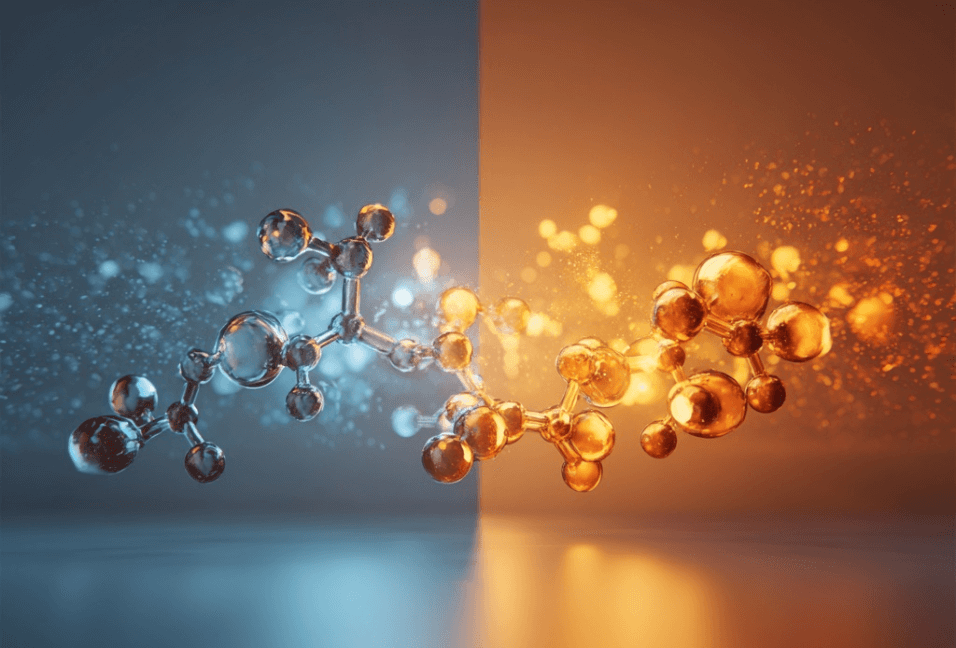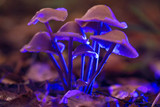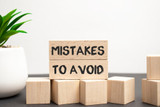THCP vs. THCB: What’s the Difference Between These Next-Gen Cannabinoids?
THCP and THCB are two minor cannabinoids getting more attention in the hemp industry, yet most people still can’t pinpoint how they differ. Discovered in 2019, THCP was found to occur naturally in cannabis plants in trace amounts, accounting for less than 0.1% of total cannabinoid content. THCB, identified around the same time, also appears in extremely small concentrations, often below detectable levels in standard lab tests. Both are now produced from hemp-derived CBD for commercial use.
In this guide, we’ll cover:
- What THCP and THCB are, and where they come from
- How their molecular structures differ
- What to know about their legality in the U.S.
- Where you might see them in hemp products
You’ll get clear explanations, so you can feel confident when comparing products on The Calm Leaf.
What is THCP?
THCP is part of the “next-generation” group of cannabinoids that came into the spotlight after lab tests showed its natural presence. It’s so small that standard plant extracts often don’t detect it. That’s why most THCP products today come from hemp-derived CBD converted through controlled processes in a lab.
When we talk about THCP in the market, we’re usually referring to hemp-based products that meet the federal requirement of 0.3% delta-9 THC or less.
You can see how it’s offered in different categories, like THCP concentrates for those who want cannabinoid-rich extracts, THCP edibles for measured servings, and THCP tinctures for more flexible usage formats. There’s also THCP flower and THCP vape products, all made from compliant hemp.
Because research is still early, what we know about THCP mainly comes from lab testing, chemical analysis, and consumer availability trends. The fact that it’s now showing up in more hemp product categories shows how quickly the market moves when something new gets identified and can be produced in compliance with the law.
What is THCB?
THCB, or tetrahydrocannabutol, is a lesser-known cannabinoid that exists naturally in trace amounts in cannabis plants. Most commercial THCB comes from hemp-derived CBD, processed in a lab to create a legal, market-ready compound.
At The Calm Leaf, you can see it in different product formats, like THCB tinctures for precise measurement or THCB edibles for controlled servings. Some prefer THCB vape products for their variety of available cannabinoid blends.
If you’ve browsed newer hemp product lines in the last year, you’ve probably noticed THCB showing up alongside THCP and other next-gen cannabinoids. This is because brands are expanding their catalogs to include these rarer compounds now that lab-based production makes them more accessible and legally compliant.
Key Differences Between THCP and THCB
When you line up THCP and THCB, the first thing to notice is their chemical build. THCP’s seven-carbon side chain sets it apart from THC’s five, while THCB has only four. This might seem like a small detail, but in cannabinoid chemistry, chain length can influence how compounds connect with receptors in your body’s endocannabinoid system.
Here’s how the two stack up:
|
Feature |
THCP |
THCB |
|
Alkyl Chain Length |
Seven carbons |
Four carbons |
|
Common Source |
Hemp-derived CBD |
Hemp-derived CBD |
|
Typical Formats |
Vapes, concentrates, edibles, tinctures, and flower |
Tinctures, edibles, vapes |
|
Availability |
Growing presence in hemp markets |
Limited but increasing in blends |
A few more distinctions worth noting:
- THCP’s longer chain has drawn more research interest so far, which partly explains its broader presence in products
- THCB’s smaller chain gives it a different molecular weight and receptor binding pattern
- Both are rare in raw plant material, so lab conversion from CBD is the go-to production method
- Product labeling usually lists the exact cannabinoid content, which you can verify through third-party lab reports
If you’ve ever compared product menus, you might have noticed more THCP listings than THCB. That’s changing as demand for variety in hemp formulations grows. Retailers are expanding their selections, so it’s worth checking both categories if you’re curious.
Which One Is Right for You?
You’ve got two cannabinoids that sound similar but don’t show up in products in the same way. THCP is more common right now; you’ll find it in vapes, concentrates, and even flower. THCB is catching up, but you might have to look in more niche product categories like edibles or tinctures.
So what’s the deciding factor? A few practical points help:
- Check product types first: If you’re set on a specific format like concentrates, start with THCP concentrates because they’re easier to find than THCB in the same style.
- Look at the lab reports: Make sure the cannabinoid content matches the label. Every product from The Calm Leaf links to third-party testing so you can confirm what’s inside.
- Factor in price and availability: Newer cannabinoids can have price swings. Sometimes THCB products cost more simply because fewer batches are made.
- Match it to your goals: If you’re trying hemp for the first time, start with something available in multiple forms so you can compare. THCP fits that bill more often than THCB right now.
Safety and Legality
Federal law basically says any hemp derivative under 0.3 % Delta 9 THC is allowed. That covers THCP and THCB when sourced from hemp. But hold on, some states aren’t cool with that. States like California and Arkansas have put bans or tight limits on intoxicating hemp compounds, even if they sneak under that federal cap.
Then there’s Tennessee. They passed a law shifting hemp oversight. Now, only businesses with special licensing can distribute finished hemp‑derived cannabinoid products, THCP and THCB included, and only wholesalers, not retailers, get a pass. That could shake up access fast.
Congress is talking about closing the “hemp loophole.” There's a proposal to redefine hemp to ban any cannabinoid that resembles THC. If that passes, many products on the market could become federally illegal overnight.
Here’s what you can do, though:
- Check your state’s rules before browsing THCP or THCB categories
- Look for third-party lab reports that confirm what’s in your bottle or jar, and that delta-9 stays under 0.3 %
- Be cautious if you're in states known to clamp down on these cannabinoids
Final Thoughts
THCP and THCB each have a place in today’s hemp market. The right one for you depends on what’s in stock locally, your preferred format, and whether you trust the brand’s testing and transparency.
When you’re comparing THCP and THCB, you’re not looking for a “winner.” You’re looking for something that matches what you can actually buy and feel comfortable buying.
One way to make that decision easier is to shop somewhere that keeps options open. At The Calm Leaf, you can sort through categories and filter by cannabinoid type. You can even catch limited-time BOGO offers or brand-specific promos on the brand sales page. For straightforward markdowns without digging too deep, the on sale section keeps everything in one place.
Whatever you end up picking, make sure the product comes with a third-party lab report you can view before checkout.
Frequently Asked Questions
How are THCP and THCB stored to keep them fresh?
Both cannabinoids are sensitive to light, heat, and air exposure. That’s why reputable retailers keep them in sealed, opaque containers until they’re shipped. At home, a cool cupboard away from sunlight is better than a fridge, which can cause condensation. On The Calm Leaf, storage recommendations are listed for each product so you know exactly how to handle them. This helps maintain the cannabinoid profile for as long as possible.
Do THCP and THCB expire?
Yes, but not overnight. Most products have a “best by” date within one to two years from production. You’ll find that date printed on the jar, box, or pouch, and it should match the batch info in the lab report. Using a product past its date might not make it unsafe, but it could change the cannabinoid content. That’s why it’s better to finish products within the intended timeframe.
Are THCP and THCB ever sold together in one product?
Yes, some products combine both cannabinoids, often alongside others like THCA or delta-8 THC. These combinations usually appear in blended vapes or multi-cannabinoid concentrates. On The Calm Leaf, you can filter search results to see blended products if they’re available. This can be useful if you want a more varied cannabinoid profile without buying multiple items. Just check the label to confirm each cannabinoid’s listed percentage.
How can I confirm if my THCP or THCB is hemp-derived?
Look for the hemp source statement on the label. By law, hemp products meeting the federal definition of less than 0.3% delta-9 THC must say they’re hemp-derived. The Calm Leaf posts certificates of analysis for every batch, showing both source and compliance. If the retailer can’t provide that info, consider it a red flag. Transparency is a big part of making a safe choice.
Why is THCB less common than THCP in stores?
THCB is newer in the retail space and is often made in smaller batches. Demand is growing, but production volume hasn’t caught up yet. THCP, on the other hand, entered the market faster due to earlier consumer interest. That’s why you’ll see more THCP vapes and THCP tinctures on shelves. Over time, THCB availability will likely expand.
What lab tests should I look for when buying THCP or THCB?
A proper lab report includes cannabinoid content, terpene profile, and screenings for pesticides, heavy metals, and microbial contaminants. Each report should have a matching batch number to the product you’re buying. The Calm Leaf links these reports directly on product pages. If you don’t see all sections included, that’s a reason to ask the seller before buying. Verified testing builds trust and ensures you’re getting what’s advertised.
Can THCP or THCB products be shipped to all states?
Not always. Some states have restrictions or bans, even if the products meet federal hemp guidelines. When ordering from The Calm Leaf, shipping availability is checked during checkout to avoid sending products where they’re prohibited. This helps prevent delays or cancelled orders. Always check your state laws before adding items to your cart.
How do I know if a THCP or THCB product is counterfeit?
Counterfeit products often lack verifiable lab reports or have vague ingredient labels. Packaging may look off, blurred printing, missing seals, or fake batch codes are common signs. When you buy from The Calm Leaf, you’re getting direct sourcing from verified suppliers. That eliminates the risk of mystery origins. If something feels “off,” it’s safer to skip it.
Is there a difference in price between THCP and THCB products?
Yes, though it depends on supply and production costs. THCB can sometimes be more expensive simply because fewer batches are produced and released. THCP pricing is more stable thanks to higher availability. On The Calm Leaf, you can compare similar formats side by side. That way, you can choose based on both budget and cannabinoid profile.
Do THCP and THCB have the same extraction process?
The starting point is the same: hemp-derived CBD extraction. After that, lab processes differ depending on the target cannabinoid. THCP conversion requires steps specific to its seven-carbon chain, while THCB conversion focuses on its four-carbon chain. The Calm Leaf works with suppliers who follow strict production protocols for both. This ensures consistency and compliance from batch to batch.
Recent Posts
-
The Next Psychoactive Combination: Live Resin & Mushroom Blends
Standing on the precipice of a brand-new era in botanical exploration, the modern enthusiast is witn …Feb 06, 2026 -
7 Mistakes to Avoid When Using Amanita Muscaria Powder
The forest floor has always held secrets that captivate the human imagination, but few natural speci …Feb 04, 2026 -
How to Properly Keep Your Pet Calm When They’re Traveling with You
For virtually all pet owners, we spend almost all of our time with our furry friends at home. This d …Feb 03, 2026



